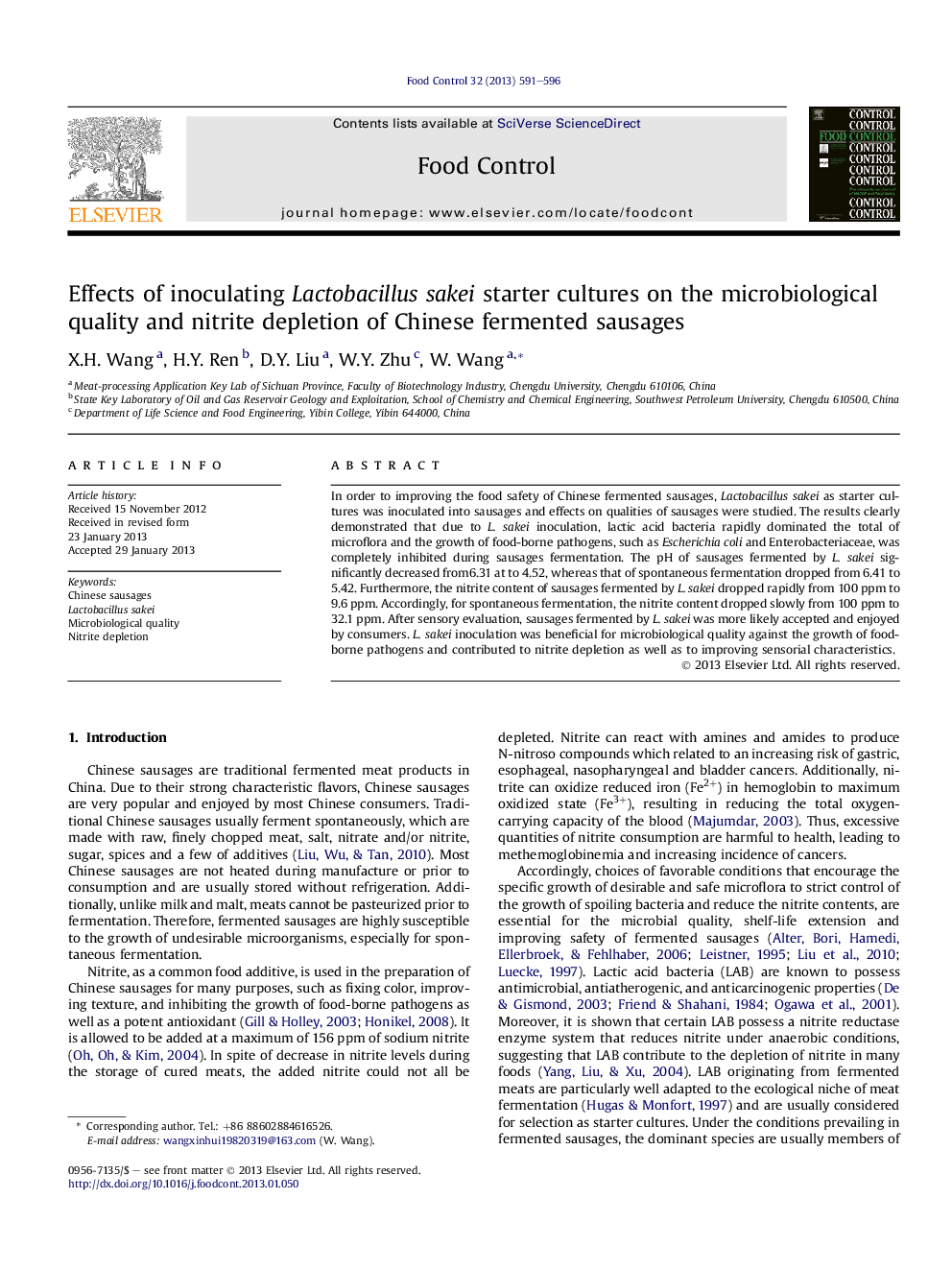| Article ID | Journal | Published Year | Pages | File Type |
|---|---|---|---|---|
| 4559409 | Food Control | 2013 | 6 Pages |
In order to improving the food safety of Chinese fermented sausages, Lactobacillus sakei as starter cultures was inoculated into sausages and effects on qualities of sausages were studied. The results clearly demonstrated that due to L. sakei inoculation, lactic acid bacteria rapidly dominated the total of microflora and the growth of food-borne pathogens, such as Escherichia coli and Enterobacteriaceae, was completely inhibited during sausages fermentation. The pH of sausages fermented by L. sakei significantly decreased from6.31 at to 4.52, whereas that of spontaneous fermentation dropped from 6.41 to 5.42. Furthermore, the nitrite content of sausages fermented by L. sakei dropped rapidly from 100 ppm to 9.6 ppm. Accordingly, for spontaneous fermentation, the nitrite content dropped slowly from 100 ppm to 32.1 ppm. After sensory evaluation, sausages fermented by L. sakei was more likely accepted and enjoyed by consumers. L. sakei inoculation was beneficial for microbiological quality against the growth of food-borne pathogens and contributed to nitrite depletion as well as to improving sensorial characteristics.
► Lactobacillus sakei as starter cultures was beneficial for microbiological quality. ► L. sakei inoculation contributes to nitrite depletion of Chinese sausages. ► L. sakei inoculation contributes to safety improvement of fermented sausages. ► L. sakei inoculation contributes to sensorial characteristics improvement.
